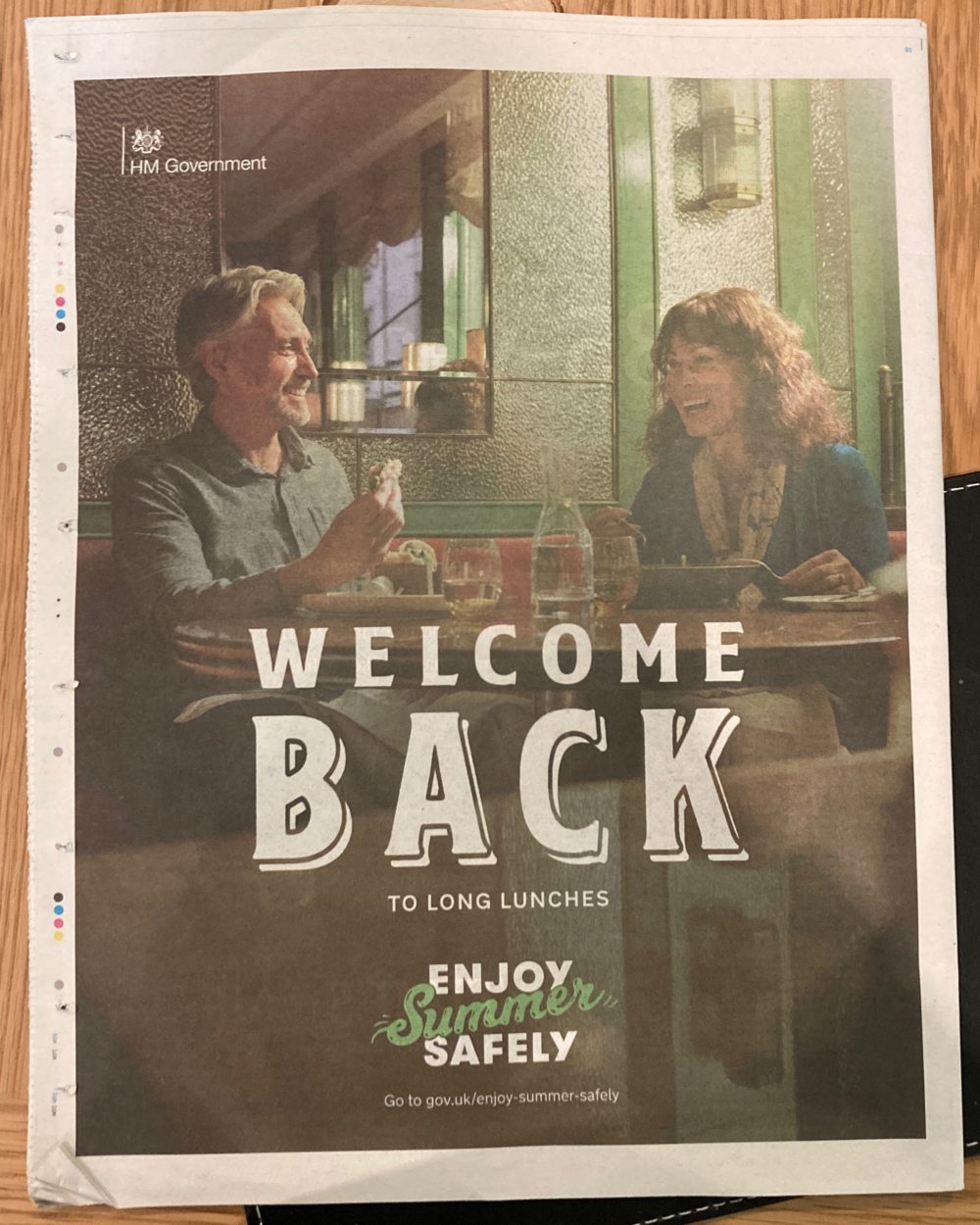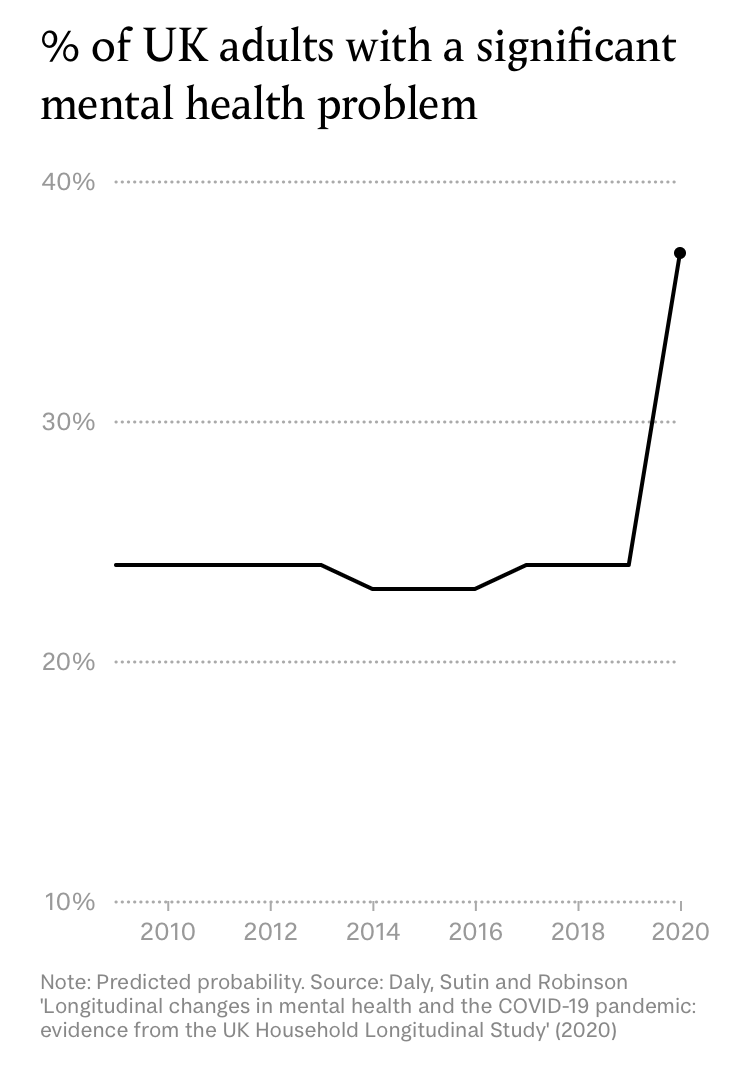Five links worth clicking
The fourth in an occasional series of posts listing things I’ve enjoyed on the web recently.
As the lock rattles
This is a bit of a cheat because I read it in the paper LRB rather than online. John Lanchester’s article on the pandemic is well worth reading for both its detailed analysis and its snark about our wholly unable Prime Minister.
It isn’t always possible to draw a straight line from someone’s personal life to their public works. Johnson’s private life is his business. But one thing you can say about a man responsible for at least nine pregnancies by at least four different women is that he is prone to wishful thinking. That wishful thinking is the common theme in the government’s failures from spring 2020 to autumn 2020 to now. Johnson doesn’t want certain things to be true, so he acts as if they can be ignored. That strategy has worked for him in domestic politics. It was at the heart of his advocacy for Brexit. But it doesn’t work in economics, and it doesn’t work in dealing with a pandemic.
Lanchester’s discussion of the topic on the LRB podcast is also worth a listen.
Things fell apart
I listen to quite a lot of speech radio, but without wanting to disappoint Auntie, I have been a bit of a BBC Sounds refusenik. It’s a stupidly named service with a hard-to-navigate app that has never seemed relevant to my life.
Yet, when searching for something completely unrelated online recently, I discovered that Jon Ronson had made a radio series for BBC Sounds, which has also had an edited run on Radio 4. The series began in November, and despite being a fan of Ronson’s work and therefore presumably within the target market, the Beeb’s marketing didn’t reach me until after it had finished, but the whole series remains available.
Once I knew it existed, I enjoyed this series. Each episode investigates the ‘origin’ of a particular aspect of the ‘culture wars’, which sounds tedious, but with Ronson’s gentle humour and humanity, it becomes a collection of interestingly strange and moving tales.
Not a drill
The relationship of the USA to guns is one that always feels difficult to grasp from a British perspective. This chilling Atlantic article from Nicole Chung describes her experience of a receiving a text from her 13-year-old daughter in the middle of the morning telling her that she is sheltering at school as there is an active shooting threat.
I was in high school when Thurston and Columbine happened, which means I was in high school before it occurred to me that I could be shot in my school. This knowledge is something that American schoolkids of all ages live with now. My 13-year-old has been participating in shooter drills since she was 3 years old—though when she was younger, her teachers couched them in vague, less frightening terms. I remember the day she came home from preschool and told me, “We practiced what to do in case someone is in the school who shouldn’t be.” She described her teacher locking the doors, turning off the lights, and herding all the students into a small bathroom, where they were told to sit still and stay “very, very quiet.” “It was hard. We weren’t very quiet,” she admitted.
This is one of those articles that just stopped me in my tracks.
Clinical negligence reform is an ethical and financial necessity
Ian Kennedy’s suggestion for reform of the NHS approach to clinical negligence, as published in Prospect, is clear and convincing.
The crux of the approach is this: we should separate the needs of the patient from the conduct of the professional/institution.
I’d struggle to mount a convincing argument against.
‘Daddy isn’t coming back’: surviving my partner’s suicide
There isn’t a line in Manuela Saragossa’s FT story that isn’t worth your time, but this one particularly spoke to me:
The meds were to treat schizoaffective disorder, a combination of schizophrenia and bipolar, the worst of both terrible worlds. In Steve’s case, his illness manifested as persistent delusions, mania and depression.
“It’s just in your mind,” I would tell him, uselessly, after an episode, once the volume had turned down on the recurring, persecutory thoughts that tormented him. “My mind is all I have,” he would rightly reply.
This is a moving and direct account of living with a partner with severe mental illness, and coming to terms with his untimely death. In another universe, I’m a psychiatrist: I came very close to applying for specialty training in psychiatry, before opting for public health. I don’t think I would have been all that good at it, in retrospect.
This post was filed under: Five links worth clicking, BBC Sounds, Financial Times, Ian Kennedy, John Lanchester, Jon Ronson, Manuela Sargossa, Nicole Chung, Prospect, The Atlantic, The LRB.





